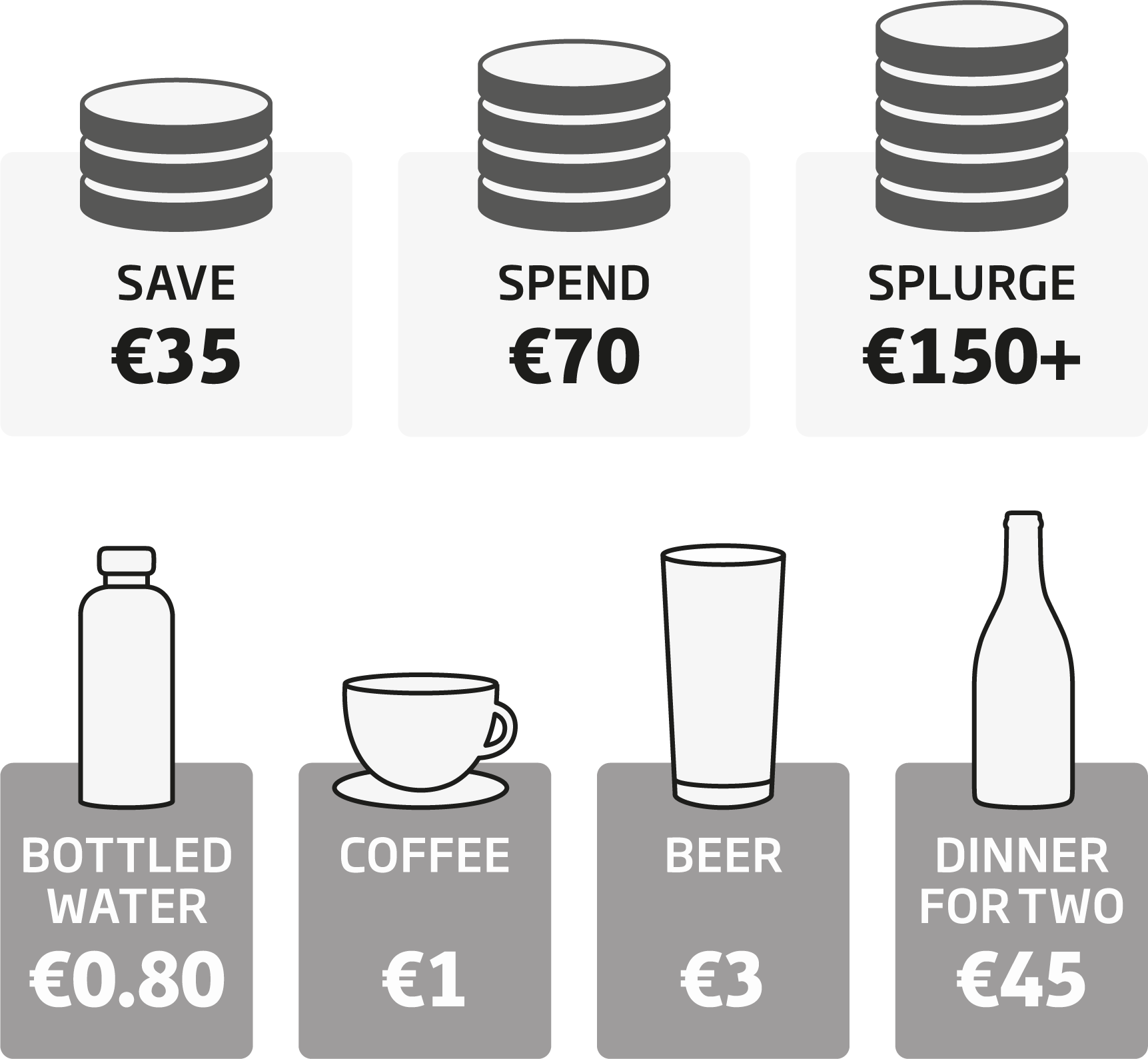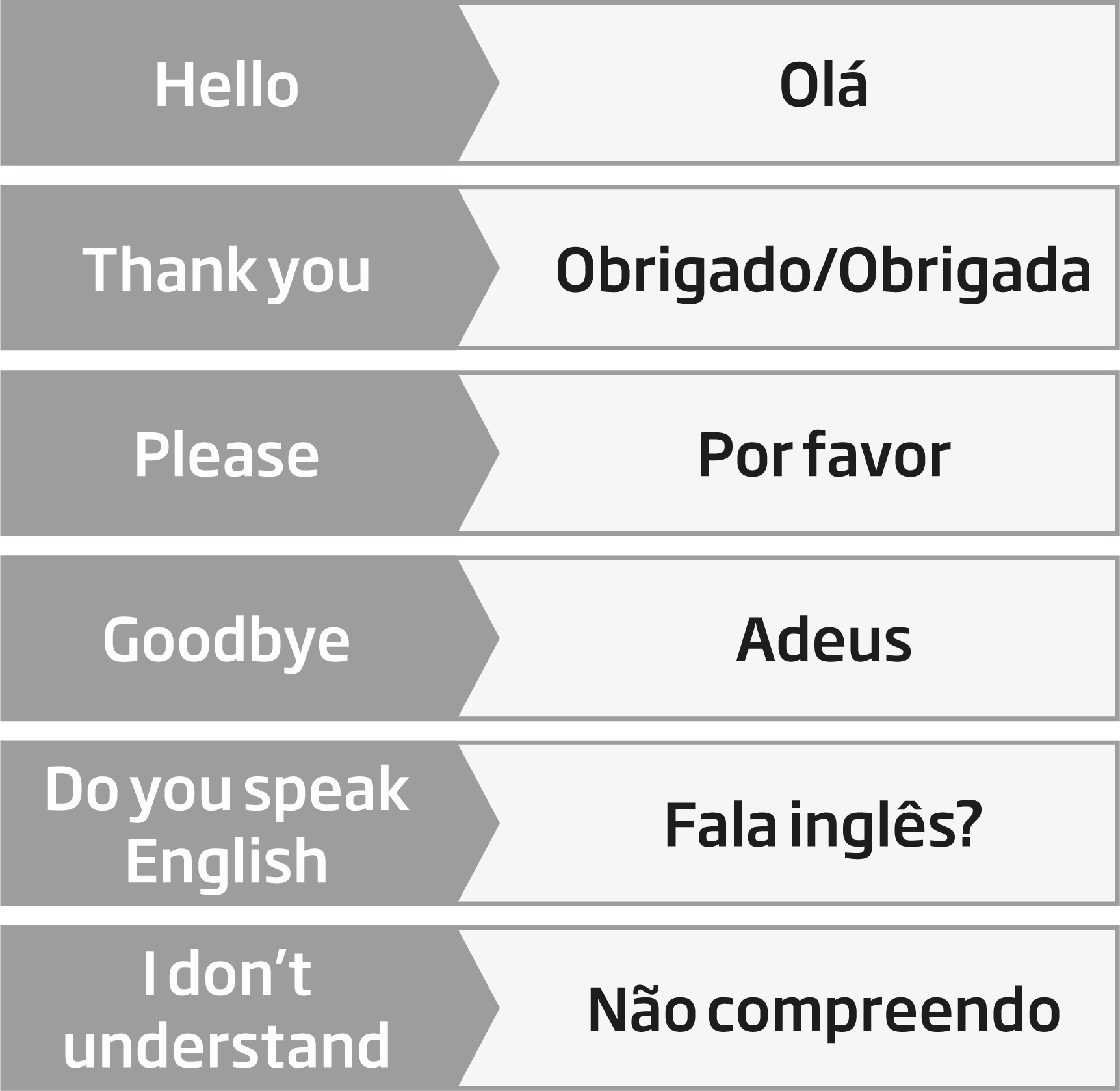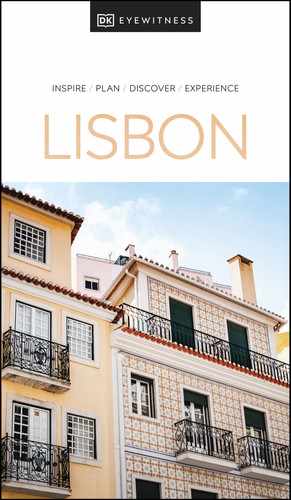g Need to Know g Contents
Before
You Go
Things change, so plan ahead to make the most of your trip. Be prepared for all eventualities by considering the following points before you travel.
Passports and Visas
For entry requirements, including visas, consult your nearest Portuguese embassy or check the Portuguese Ministry of Foreign Affairs. EU nationals and citizens of the UK, US, Canada, Australia and New Zealand do not need visas for stays of up to three months.
Ministry of Foreign Affairs
Government Advice
Now more than ever, it is important to consult both your and the Portuguese government’s advice before travelling. The UK Foreign and Commonwealth Office, the US State Department, the Australian Department of Foreign Affairs and Trade and the Visit Portugal website (Portugal’s official tourism website) offer the latest information on security, health and local regulations.
AUS
UK
∑ gov.uk/foreign-travel-advice
US
Visit Portugal
Customs Information
You can find information on the laws relating to goods and currency taken in or out of Portugal on the Visit Portugal website.
Insurance
We recommend that you take out a comprehensive insurance policy covering theft, loss of belongings, medical care, cancellations and delays, and read the small print carefully.
EU citizens are eligible for free emergency medical care in Portugal provided they have a valid EHIC (European Health Insurance Card).
EHIC
∑ gov.uk/european-health-insurance-card
Vaccinations
No inoculations are necessary for Portugal.
Booking Accommodation
Lisbon offers a variety of accommodation, ranging from boutique hotels to campsites, budget hostels to private apartment rentals. During the summer months, lodgings fill up fast and prices become inflated, so book in advance. Lisbon is a popular city-break destination, and it can also be difficult to find a last-minute weekend booking during the low season (Dec–Mar).
Visitors to Lisbon are required to pay a €2/night city tourism tax for stays up to 7 days. Children below the age of 13 are exempt.
Money
Most establishments accept major credit, debit and prepaid currency cards. Contactless payments are gradually becoming more common in Lisbon, but it’s always a good idea to carry cash for smaller items like coffee and pastéis de nata, or when visiting markets or hailing a taxi. ATMs are widely available across the city.
Travellers with Specific Requirements
Lisbon’s hills can prove a challenge for visitors with reduced mobility and those with prams. Facilities in Lisbon have improved over recent years, with wheelchairs, adapted toilets, and reserved car parking available at the airports and main stations. Ramps and lifts are installed in many public places and some buses (marked with a blue-and-white logo at the front) accommodate wheelchair-users.
Some museums, such as the Museu Nacional do Azulejo offer free video guides, in both Portuguese sign language and the International Sign system.
Tour companies, such as Tourism For All, offer specialist holiday packages, while Accessible Portugal gives comprehensive advice on travelling with limited mobility.
Accessible Portugal
Tourism For All
Language
Portuguese is the official language in Lisbon. English is widely spoken in Portugal’s cities, but the Portuguese are proud of their language and appreciate visitors’ efforts to communicate in Portuguese. While written Portuguese is similar to Spanish, the idiosyncratic pronunciation of spoken Portuguese can demand several attempts to correctly enunciate even simple phrases. Attempting to communicate solely in Spanish may cause offence.
Opening Hours
| COVID-19 The pandemic continues to affect Lisbon. Some sights and hospitality venues are operating on reduced or temporary opening hours, and require visitors to make advance bookings. Always check ahead before visiting. |
Lunchtime Some museums and public buildings may close from noon until 2pm.
Monday State-run museums, public buildings and monuments are closed all day.
Sunday Churches are closed to tourists during Mass. Some public transport runs less frequently.
Public holidays Most museums, public buildings and many shops close early or for the day.
Need to know Before You Go
At a Glance
Currency
Euro (EUR)

Average daily spend

Need to know Before You Go
Essential Phrases

Need to know Before You Go
Electricity Supply
Power sockets are type F, fitting a two-prong plug. Standard voltage is 220–240v.

Need to know Before You Go
PUBLIC HOLIDAYS
| 1 Jan | New Year’s Day |
| Mar/Apr | Good Friday |
| Mar/Apr | Easter Sunday |
| 25 Apr | Freedom Day |
| 1 May | Labour Day |
| 10 Jun | Portugal Day |
| 13 Jun | Feast of St Anthony |
| 20 Jun | Corpus Christi |
| 15 Aug | Assumption Day |
| 5 Oct | Republic Day |
| 1 Nov | All Saint’s Day |
| 1 Dec | Restoration of Independence |
| 8 Dec | Immaculate Conception Day |
| 25 Dec | Christmas Day |
